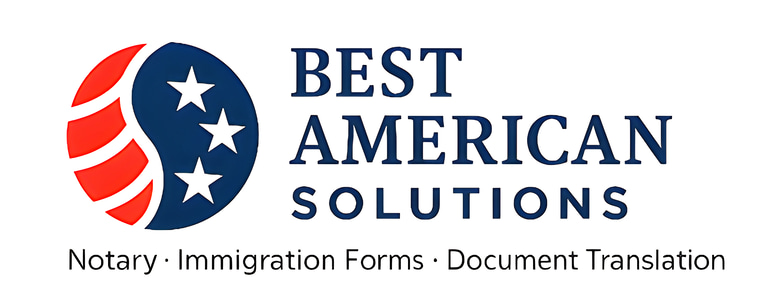The Crucial Role of Accurate Translations in U.S. Immigration Court
10/18/20251 min read


Introduction
In the realm of immigration law, precise communication is essential, as it directly impacts an individual's legal standing and the outcome of their case. One significant aspect of this communication is the role of accurate translation services, especially in immigration court proceedings. With the increasing diversity of applicants seeking immigration relief, the necessity for proper translations becomes more pronounced.
The Importance of Accurate Translations
Immigration courts handle cases involving individuals from various linguistic backgrounds, making it imperative that all documents and spoken testimonies are accurately translated. Misinterpretations can lead to significant consequences, including delays in proceedings, misrepresentation of facts, or even deportation. An accurate translation ensures that all parties involved fully comprehend the proceedings, thereby upholding the integrity of the legal process.
Consequences of Poor Translation
When translation services fail to deliver accurate translations, the repercussions can be dire. A mistranslated document might misrepresent an applicant's situation, leading to incorrect legal decisions. Furthermore, during oral hearings, if a witness or the applicant cannot articulate their circumstances clearly due to poor translation, the judge may miss crucial details that could impact the ruling. This emphasizes why individuals seeking representation in immigration court must prioritize engaging qualified translators who specialize in legal terminology.
Legal Implications
The U.S. immigration system is complex and fraught with challenges, further complicating an already stressful experience for applicants. Legal representation is vital, and ensuring that translators are also well-versed in the nuances of immigration law can facilitate better communication. This is not just a logistical necessity; it is a matter of justice. A sound understanding of the legal framework allows translators to convey information accurately, preserving the applicant's rights and choices.
Conclusion
In conclusion, the importance of having proper translations in U.S. immigration court cannot be overstated. The stakes in these proceedings are incredibly high, and accurate translations serve as a cornerstone for effective communication. For individuals navigating the immigration system, investing in competent translation services is crucial not only for their immediate legal needs but also for their overall peace of mind during a challenging time.
